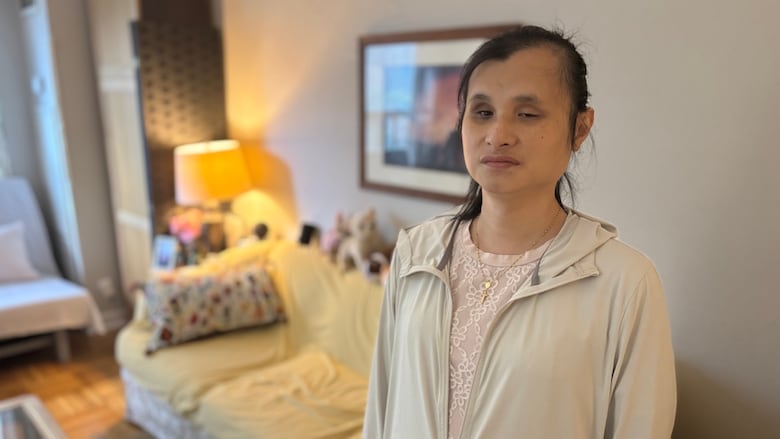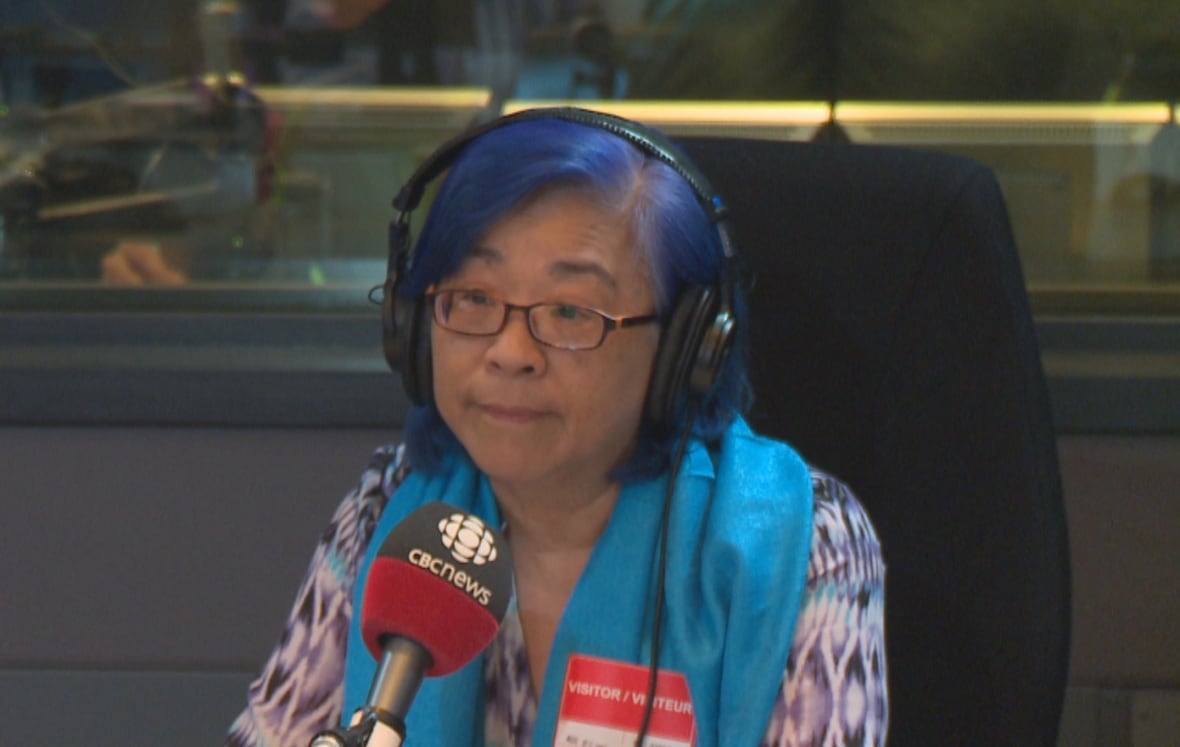Patient, advocates worry shuttered mental health program for Toronto's Chinese community will reduce access
University Health Network says program hasn't closed but was integrated into larger initiative

A Toronto woman and health advocates are worried the Chinese community will lose access to culturally sensitive mental health care after a specialized program at Toronto Western Hospital was shuttered and subsumed into a larger outpatient mental health service for underrepresented communities.
But the University Health Network says the Asian Initiative in Mental Health (AIM) program hasn't shut down. Instead, it has been integrated into the larger program to provide care to more people, says Ishrat Husain, UHN's department head and program director for mental health.
Joy Luk says the first time she heard AIM "had been closed" was in mid-July during an appointment with her psychiatrist, who warned her she might be switched to another physician.
She says her doctor told her she could no longer access Cantonese-speaking psychotherapists, who were allegedly fired with the program's closure.
While Husain confirmed there were some "staffing changes," he says patients will still have access to their psychiatrists.
"I'm under great pressure, whether they'll stop my service [and] when?" Luk said.
Luk says she saw more than 10 psychiatrists when she was admitted to Toronto Western in 2022 for struggles with depression.
She says many doctors did not understand the context of her experiences as a blind woman in her home country of Hong Kong.
That all changed, she says, when she gained access to a psychiatrist who could speak Cantonese and understood the cultural nuances of the Chinese community through the AIM program.
"It's so difficult to explain in English the deepest part of my mind," said Luk, who moved to Canada in 2021.
"It's very important for a psychiatrist to understand the background and the underlying situation of a patient, especially, we Chinese have specific family teachings."
Luk says the "one stop shop" service gave her access to Cantonese-speaking doctors, group therapies and other mental health supports, but now she's unsure how her care will change.
Change meant to 'modernize' access to care: doctor
UHN is hoping the change will shorten wait times for initial assessments from six months to a few weeks, says Husain.
The outpatient program will have four Mandarin and Cantonese-speaking doctors, while AIM only had two, he says.
"The change was to actually modernize and make our mental health program more responsive to the population that we're serving," he said.
Once the program shift was announced, Husain says patients were individually contacted to answer questions and address any concerns.
"Change can be difficult for a lot of folks," he said. "We've been doing outreach to patient groups, community partners, referring physicians as well to be able to, to quell some of that anxiety."
Only hospital-based program for minorities in Toronto: psychiatrist
But despite what Husain says about the program integration, psychiatrist Ted Lo says he considers AIM to be closed as it no longer has the same name, allegedly lost half of its staff and has left patients confused in the aftermath. Lo is with the RE-AIM coalition, a group that aims to consult with UHN to restore the program.
He says UHN's response to AIM's closure is "all words."
"The program that has run for 23 years has served a lot of Chinese patients, but not just serving them, but serving in a way that is culturally safe and effective," he said.
AIM was the only hospital-based mental health program that served a specific minority population in Toronto, and likely all of Canada, says Lo.

Josephine Wong, another member of the RE-AIM coalition, says the hospital should've consulted patients, staff and community partners prior to the change.
"This kind of providing services to all is a sugar coated way to say that let's just get rid of those who cannot really voice for themselves and we just do whatever we want," she told CBC Radio's Metro Morning.
Husain says UHN is happy to meet with RE-AIM to talk about their concerns, but asserts the program has "not gone away."
Consultations were not held before the change as UHN felt it would have "minimal impact on patient care," he said.
With files from Dale Manucdoc


